Meet the Invited Program
Meet the Invited Program for the SRCD 2023 Biennial Meeting on March 23-25, 2023 in Salt Lake City, Utah, USA.
Native American & Indigenous Children's Development
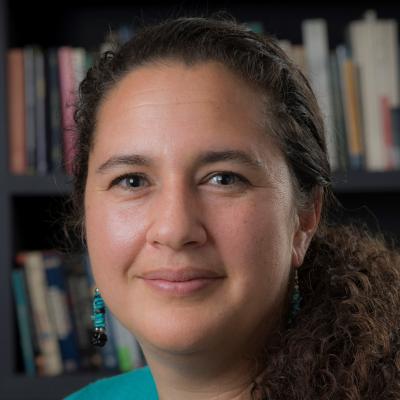
Megan Bang
Megan Bang (Ojibwe and Italian descent) is a Professor of the Learning Sciences at Northwestern University and is currently serving as the Director of the Center for Native American and Indigenous Research. Dr. Bang studies foundational dynamics of culture, learning, and development across the life course particularly with respect the natural world. She has been especially interested in cross-cultural differences in knowledge organization, reasoning, and decision-making about complex socio-ecological systems and the design of more effective and equitable learning environments. She has been especially focused on regenerating Indigenous systems of education for the 21st century. She currently has several major projects across multiple states developing inter-disciplinary place based education STEAM education. Further she brings these programs into teacher education programs as well as educational leader preparation programs. Dr. Bang is a member of the National Academies of Education and a member of the Board of Science Education at the National Academy of Sciences. She is a Mellon Distinguished Scholar at the Center for Imagination in the Borderlands at Arizona State University.

Seth Oppong
Seth Oppong, Ph.D., is an Associate Professor at the Department of Psychology, University of Botswana, Gaborone, Botswana. He is also a Research Associate at the Department of Psychology, University of the Witwatersrand, South Africa. He is viewed by many as a thinker and a theoretician in psychology in Africa. His research interests include cultural, historical, philosophical, and theoretical (CHPT) domains of psychology as well as African psychology and decolonising early childhood development.
Racial & Economic Justice
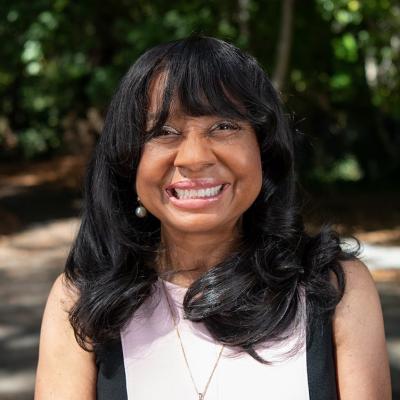
Linda Burton
These scholars will candidly share how historical, geographic, and socio-economic contexts, the politics of science, and our intersectional identities shaped the 40-year evolution of our individual programs of research on African American families. McBride Murry’s program of research embodied the metaphor of “toxic waters flowing down stream,” that create environmental conditions that shape everyday life experiences of families, children, youth, and their communities, with long term effects on development, health, and wellbeing. To survive and thrive, families are required to build capacity to navigate daily adversity that take an alarming toll on them. She will share particulars about her professional journey to rethink the conceptualization of resilience, strength-based, cultural framing to action-oriented research and methodological approaches that advance equity through policies and practices.
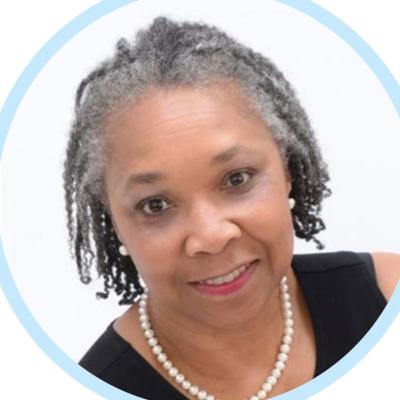
Velma McBride Murry
McBride Murry’s program of research embodied the metaphor of “toxic waters flowing down stream,” that create environmental conditions that shape everyday life experiences of families, children, youth, and their communities, with long term effects on development, health, and wellbeing. To survive and thrive, families are required to build capacity to navigate daily adversity that take an alarming toll on them. She will share particulars about her professional journey to rethink the conceptualization of resilience, strength-based, cultural framing to action-oriented research and methodological approaches that advance equity through policies and practices.
Racial & Economic Justice with Baby's First Years Study

Baby's First Years Study
Katherine Magnuson, Ph.D., is a Vilas Achievement Professor of Social Work and the Director of the Institute for Research on Poverty at the University of Wisconsin, Madison. She was elected into the American Academy of Social Work and Social Welfare in 2018. Her research focuses on the well-being and development of economically disadvantaged children and their families. She examines how disparities in socioeconomic status affect children’s development and how these effects may be altered by policies and programs, especially early childhood education programs.
Kimberly Noble, M.D., Ph.D., is a Professor of Neuroscience and Education at Teachers College, Columbia University. As a neuroscientist and board-certified pediatrician, her research focuses on how socioeconomic inequality relates to children's cognitive and brain development. Dr. Noble was awarded a 2017 Association for Psychological Science Janet Taylor Spence Award for Transformative Early Career Contributions, and the 2021 American Psychological Association Award for Distinguished Contributions to Psychology in the Public Interest. She is an elected Fellow of the Association for Psychological Science.
Lisa A. Gennetian is a Pritzker Professor of Early Learning Policy Studies in the Sanford School of Public Policy at Duke University. Dr. Gennetian’s research spans poverty and policy research, income security and stability, early care and education, and children’s development, with a lens toward causal mechanisms. In addition to her role in the Baby’s First Years study, Dr. Gennetian directs a body of research applying insights from behavioral economics to support parent engagement in, and enhance the impacts of, early childhood interventions and leads research on the economic circumstances of Hispanic children and families with the National Center for Research on Hispanic Families and Children.
Greg J. Duncan spent the first 25 years of his career at the University of Michigan working on and ultimately directing the Panel Study of Income Dynamics (PSID) data collection project. Since 1968, the PSID has collected economic, demographic, health, behavior and attainment data from a representative sample of U.S. individuals and the households in which they reside. With these and other data, Dr. Duncan has studied the economic mobility of the U.S. population, both within and across generations, with a particular focus on low-income families. More specifically, he has investigated the roles families, peers, neighborhoods and public policy play in affecting the life chances of children and adolescents. Dr. Duncan’s research has highlighted the importance of early childhood as a sensitive period for the damaging influences of economic deprivation as well as for the beneficial impacts of policy-induced income increases for working families. The focus of his more recent research has shifted from these environmental influences to the comparative importance of the skills and behaviors developed during childhood. In particular, Dr. Duncan has sought to understand the relative importance of early academic skills, cognitive and emotional self-regulation, and health in promoting children’s eventual success in school and the labor market.
Nathan A. Fox is Distinguished University Professor in the Department of Human Development and Quantitative Methodology at the University of Maryland. His research focuses on the role of infant temperament in the development of social competence with particular interest in the emergence of anxious behavior in children. This work has been continuously funded by the National Institutes of Health for over 20 years. He is one of three Principal Investigators of the Bucharest Early Intervention Project which examines the effects of early experience on brain and behavioral development. He is past President of the International Society of Infant Studies and Division 7 of the American Psychological Association and is a founding member of the National Scientific Council for the Developing Child. He is a Fellow of the Association for Psychological Science, the American Association for the Advancement of Science as well as The American Academy of Arts and Sciences.
Dr. Duncan was elected President of the Population Association of America for 2008 and President of the Society for Research in Child Development for 2009-2011. He was also elected to the American Academy of Arts and Sciences in 2001 and to the National Academy of Sciences in 2010. In 2013, Dr. Duncan was awarded the Klaus J. Jacobs Research Prize.
Sarah Halpern-Meekin, Ph.D., is a Full Professor in the School of Human Ecology and the La Follette School of Public Affairs at the University of Wisconsin-Madison. Her research focuses on the role of instability in family relationships and finances and on the ways public policy may affect these experiences.
Commentaries
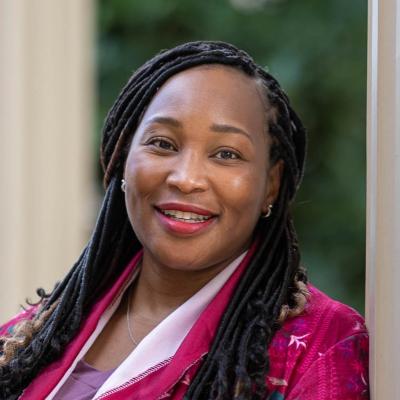
Iheoma U. Iruka
Iheoma Iruka, Ph.D., is the Director of Research and Evaluation at the University of Nebraska Buffett Early Childhood Institute. Dr. Iruka’s research focuses on determining how early experiences impact poor and ethnic minority children’s learning and development, and the role of the family and education environments and systems. She is engaged in projects/initiatives focused on how evidence-informed policies, systems, and practices in early education can support the optimal development and experiences of low-income and ethnic minority children. In particular, she has been engaged in addressing how best to ensure excellence for young Black children, such as through classroom measure development, public policy, and publications geared towards early education practitioners working with diverse populations. She has served on numerous national boards and committee, including National Academies of Sciences Study on Parenting and National Research Conference on Early Childhood.
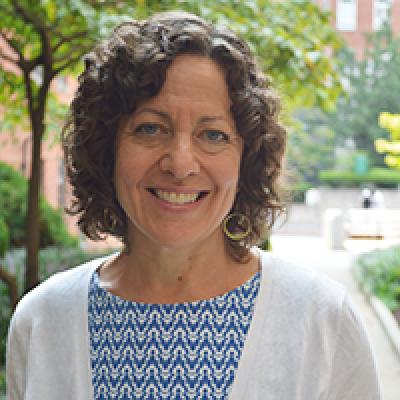
Lisa Berlin
Lisa J. Berlin, Ph.D., is a Professor at the University of Maryland School of Social Work. Her research addresses infant-caregiver attachment and programs and policies for families with young children. She is especially interested in the extent to which attachment-based interventions can improve publicly funded programs designed to support early parenting and child development. Dr. Berlin has published widely in journals such as Child Development, Prevention Science, and Development and Psychopathology, and she has made invited contributions to numerous edited volumes. She is Editor-in-Chief of the SRCD Social Policy Report and a longstanding member of the editorial board of Attachment and Human Development. Dr. Berlin has been a fellow of Zero to Three and in 2019 was named among the 100 most influential contemporary social work faculty. She holds a B.A. in Psychology from Barnard College/Columbia University and an M.S. and Ph.D. in Human Development and Family Studies from Penn State University.

Phil Fisher
Dr. Philip Fisher is Director of the Stanford Center on Early Childhood and a Professor in the Graduate School of Education at Stanford University. He is also a Senior Fellow at the Center on the Developing Child and a member of the National Scientific Council on the Developing Child, both based at Harvard University. His research focuses on developing and evaluating early childhood interventions in communities, and on translating scientific knowledge regarding healthy development under conditions of adversity for use in social policy and programs. He is currently the lead investigator in the ongoing RAPID-EC project, a national survey on the well-being of households with young children during the COVID-19 pandemic. Dr. Fisher is the recipient of the 2012 Society for Prevention Research Translational Science Award, and a 2019 Fellow of the American Psychological Society.
Displacement/Migration: Refugee Families and Adaptations

Sarah Dryden-Peterson
Sarah Dryden-Peterson leads a research program that focuses on the connections between education and community development, specifically the role that education plays in building peaceful and participatory societies. In her field-based research globally, in her teaching, and in her role as founder and director of Refugee REACH, she examines what it would take for all children to access quality education, be part of welcoming communities, and contribute to building peaceful futures. Her research connects practice, policy, and scholarship and is strengthened through sustained collaborations with communities, NGOs, governments, and UN agencies, with a focus on low- and middle-income countries particularly those that are conflict-affected. Dryden-Peterson’s research has played critical roles in shaping global policy and local programs that have the potential to create quality, conflict-informed, and future-creating education for millions of children globally in settings of migration and displacement. Raised in Toronto, Canada, Dryden-Peterson taught primary and middle school in Madagascar, South Africa, and the United States.
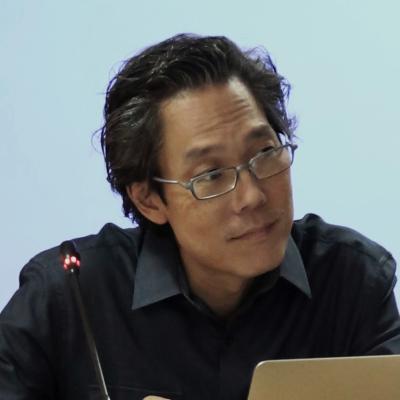
Hirokazu Yoshikawa
Hirokazu Yoshikawa is the Courtney Sale Ross Professor of Globalization and Education at NYU Steinhardt and a University Professor at NYU, and Co-Director (with J. Lawrence Aber) of the Global TIES for Children Center at NYU. He is a core faculty member of the the Psychology of Social Intervention and Human Development Research and Policy programs at Steinhardt. He is also a faculty affiliate of the Institute of Human Development and Social Change and Metropolitan Center for Equity and the Transformation of Schools at NYU. He is a community and developmental psychologist who studies the effects of public policies and programs related to immigration, early childhood, and poverty reduction on children’s development. He conducts research in the United States and in low- and middle-income countries.
Centering the Voices of Youth Activists in the Fight for Climate Justice
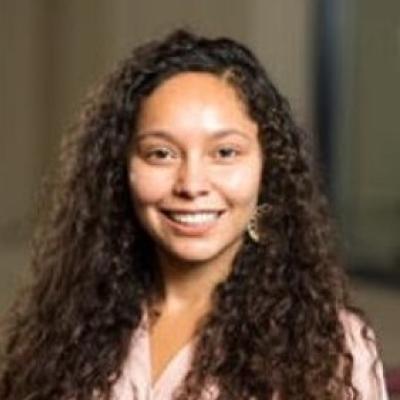
Josefina Bañales
Josefina Bañales, Ph.D., is an Assistant Professor in the Community and Prevention Research Area at the University of Illinois, Chicago. Her research examines how youth develop beliefs, feelings, and actions that challenge racism (i.e., youth critical racial consciousness development). In collaboration with youth, schools, parents, and community organizations, she co-creates opportunities that facilitate youths’ critical racial consciousness development. Dr. Bañales infuses her personal experiences as a Mexican American woman who is a first-generation high school, college, and doctoral student from the Southwest side of Chicago with her community-engaged research with youth of color in schools and community organizations. Dr. Bañales loves hot black coffee, singing, and walking at a very leisurely pace.

Gale Sinatra
Gale M. Sinatra is the Stephen H. Crocker Chair and Professor of Education and Psychology at the Rossier School of Education at the University of Southern California where she serves as the Associate Dean for Research. She received her B.S., M.S., and Ph.D. in Psychology from the University of Massachusetts, Amherst. She heads the Motivated Change Research Lab, the mission of which is understanding the cognitive, motivational, and emotional processes that lead to attitude change, conceptual change, STEM learning, and public understanding of science. She recently chaired the APA Climate Change Task Force. She is a Fellow of AERA and APA and a member of the National Academy of Education. She is the co-author (with Barbara Hofer) of Science Denial: Why It Happens and What to Do About It.
Language Diversity in Development and Learning
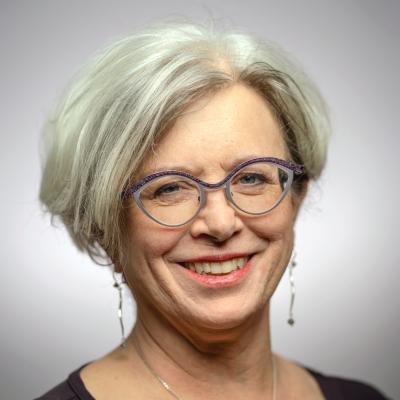
Lisa Bedore
Dr. Lisa Bedore is Professor and Chair of the Communication Sciences and Disorders Department at Temple University and a Fellow of the American Speech Language and Hearing Association. Her training in the areas of communication disorders and Spanish linguistics. She directs the HABLA lab at Temple University. Dr. Bedore seeks to understand how bilingual language learners with and without developmental language disorder integrate information across linguistic domains (morphosyntax, phonology, and semantics). She has addressed this topic through studies focusing on the development of bilingual assessment tools, identification of risk for developmental language disorders, and language learning in bilingual children. A common element across these studies is examination of the ways that bilingual children with and without risk for developmental language disorders leverage their knowledge in the production of narrative, a foundational skill for literacy.
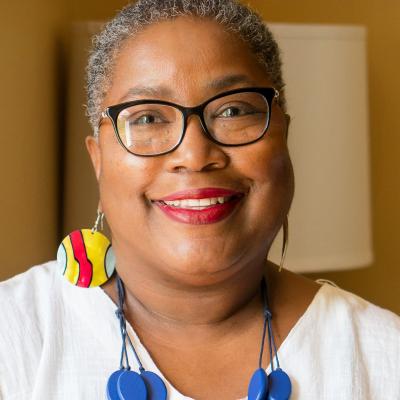
Julie Washington
Julie Washington is a Professor in the School of Education at the University of California – Irvine (UCI). She is a Speech-Language Pathologist and a Fellow of the American Speech Language Hearing Association. Dr. Washington directs the California Learning Disabilities Research Innovation Hub. She is also director of the Language Variation, Poverty and Academic Success lab. Her research is focused on the intersection of literacy, language variation, and poverty in African American children. In particular, her work focuses on understanding the role of cultural dialect in assessment outcomes, identification of reading disabilities in school-aged African American children. Currently, she is working on development of assessment protocols for use with high density dialect speakers, designed to improve our ability to measure their linguistic competence. This work is funded by the National Institute on Deafness and other Communication Disorders of the National Institutes of Health.
Centering Race & Culture: Identity
Shose Kessi
Shose Kessi is an Associate Professor and was appointed Dean of the Faculty of Humanities at the University of Cape Town (UCT). She is the founder and first chairperson of the UCT Black Academic Caucus. In addition to all these roles, Associate Professor Kessi has served on numerous other faculty and university committees. Her research has centered on political psychology, decoloniality, community-based empowerment and social change. She explores issues of identity, such as race, class and gender, and how these impact on people – individually and collectively – as change agents in transformation efforts. She is the co-founder and co-director of the Hub for Decolonial Feminist Psychologies in Africa, an emerging research grouping that is gaining traction within and outside the university. Dr. Kessi earned a Ph.D. in Social Psychology and an M.Sc. in Organisational and Social Psychology with distinction, both from the London School of Economics and Political Science (LSE). She also holds a Postgraduate Diploma in Business Administration from the Wits Business School.

Tiffany Yip
Tiffany Yip, Ph.D., is a Professor of Psychology at Fordham University. She completed an undergraduate degree at Cornell University, earned her M.A. and Ph.D. at NYU, and completed a postdoctoral fellowship at the University of Michigan. Her research on ethnic identity, discrimination, and sleep disparities among BIPOC adolescents and young adults has been published in Pediatrics, American Psychologist, Child Development, Developmental Psychology, and Current Directions in Psychological Science. She has served as an Associate Editor for Developmental Psychology, Child Development, Cultural Diversity and Ethnic Minority Psychology, and the Asian American Journal of Psychology. She is a Fellow of the American Psychological Association, the Association for Psychological Science, and the Academy of Behavioral Medicine and Research. Her research has been funded by the National Institutes of Health and the National Science Foundation and has been featured in the NY Times, Washington Post, Los Angeles Times, CBS and Psychology Today.
Research-Practice-Partnership & the Science-Practice-Policy Nexus
Moderated by Vivian Tseng, Foundation for Child Development
Leah Austin
Dr. Leah Austin is an accomplished, multi-faceted and visionary leader who has been working on behalf of Black children and their families for over two decades. Leah began her career as a public school teacher in southeast DC teaching kindergarten and first grade. Leah credits the summers she spent outside of the classroom interning at the National Black Child Development Institute (NBCDI) as both giving her a solid grounding in the intersections of policy, practice and programs and an unwavering commitment to asset-based framing of Black children and their families. Her professional trajectory includes leadership positions with the United Way of Greater Atlanta, Annie E. Casey Foundation, Southern Education Foundation, Russell Innovation Center for Entrepreneurs and most recently the Schott Foundation for Public Education. Leah is also passionate about her own learning, she holds an undergraduate degree in psychology from Fisk University, a Master’s degree in School Psychology from Howard University and a Doctorate of Education from the University of Pennsylvania. She recently obtained a certificate in Strategic Foresight from the University of Houston. Lastly but far from least she is the mother of an energetic and insightful son.
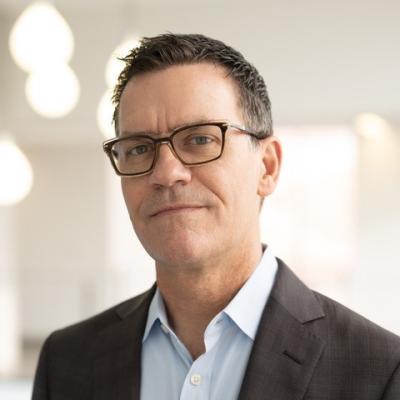
Stephen Russell
Stephen Russell (he/him) is Priscilla Pond Flawn Regents Professor in Child Development, chair of the Department of Human Development and Family Sciences, and Amy Johnson McLaughlin Director of the School of Human Ecology at the University of Texas at Austin. He is an expert in adolescent and young adult health, with a focus on sexual orientation and gender identity. His 2016 book, Sexual Orientation, Gender Identity and Schooling: The Nexus of Research, Practice and Policy, won awards from the American Psychological Association and the Society for Research on Adolescence. He has served on the governing boards of National Council on Family Relations (and is an elected fellow), SIECUS: Sex Ed for Social Change, and the Society for Research on Adolescence (he served as President 2012-2014). He currently serves on the Governing Council of SRCD.
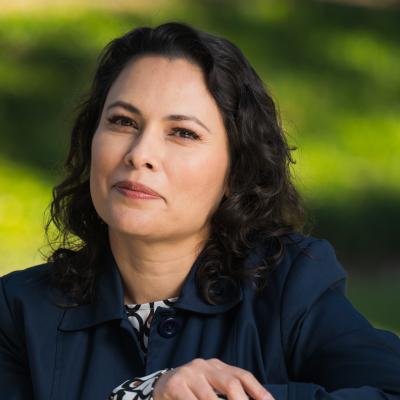
Ruth Lopez Turley
Professor López Turley directs the Kinder Institute for Urban Research at Rice University, which brings together data, research, engagement, and action to improve lives. In 2011, she founded the Houston Education Research Consortium (HERC), a research-practice partnership between Rice University and eleven Houston area school districts, representing over 700,000 students. A program of the Kinder Institute, HERC works to improve educational equity by connecting research to policy and practice, working directly with district leaders. She directed HERC from 2011 to 2022, during which she raised over $30M so that school districts would not have to pay for research. She also founded the National Network of Education Research-Practice Partnerships, which connects and supports over 60 partnerships between research institutions and education agencies throughout the country. She is a graduate of Stanford and Harvard and is originally from Laredo, Texas.
Centering Race & Culture in Developmental Science: Theoretical Perspectives
Moderated by Tiffany Yip, Fordham University
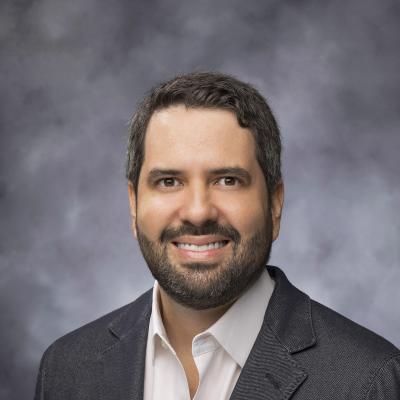
Jose Causadias
Dr. José M. Causadias is a Panamanian immigrant working as associate professor at the School of Social and Family Dynamics at Arizona State University. He moved from Panamá to the U.S. in 2009 to pursue a Ph.D. in Child Psychology from the Institute of Child Development at the University of Minnesota, Twin Cities. He is passionate about theory and research on culture, mental health, and Latinx children, youth, and families. Abuelas (Latinx grandmothers) play a crucial role in the development of Latinx children, youth, and families, and are central to understand Latinx cultures as systems of people, places, practices, power, and purpose (Causadias, 2020). However, they have been largely excluded from developmental theory and research, especially AfroLatinx, Indigenous, and Brown abuelas. This compromises our understanding of the role of culture in Latinx child development. To document this problem, I present evidence from a systematic review of the literature. I employ critical race theory and intersectionality to interpret these findings. I argue that this neglect is not accidental, but an erasure explained by the social position of AfroLatinx, Indigenous, and Brown abuelas at the intersection of racism, colonialism, sexism, and ageism. I present some conclusions and future research directions.
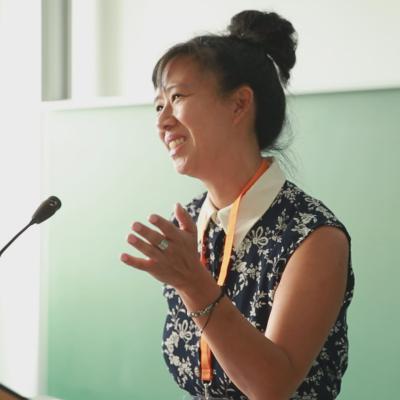
Linda Juang
Linda Juang is a Professor in the Department of Inclusive Education at the University of Potsdam, Germany. She focuses on how experiences of immigration relate to minoritized adolescents’ development and adjustment in school, family, and community contexts.
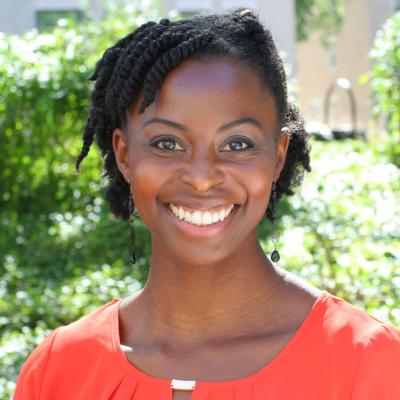
Onnie Rogers
Onnie Rogers is a developmental psychologist and identity scholar whose research curiosities converge at the intersection of human development, diversity and equity, and education. Dr. Rogers is interested in social and educational inequities and the mechanisms through which macro-level disparities are both perpetuated and disrupted at the micro-level of identities and relationships. Rogers directs the Development of Identities in Cultural Environments (DICE) research lab, where they conduct research on identity development among racial and gender diverse children and adolescents in sociocultural and educational contexts. She asks how our social groups—and the cultural ideologies and stereotypes that accompany them—shape how we see ourselves and interact with others. She received her Ph.D. in developmental psychology from New York University’s Steinhardt School of Culture, Education, and Human Development and holds a B.A. in psychology and educational studies from the University of California, Los Angeles (UCLA).
Centering Race & Culture in Developmental Science: Native American/Indigenous Child Development
With Community Partners
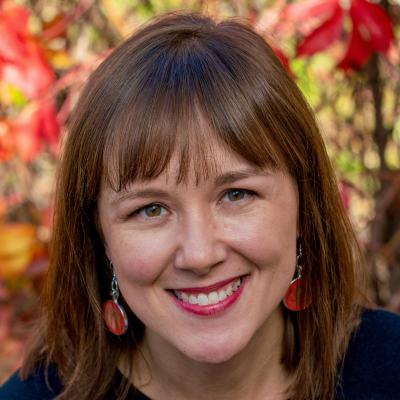
Melissa Walls
Dr. Melissa Walls, Ph.D., (Bois Forte and Couchiching First Nation Anishinaabe), is a Bloomberg Associate Professor of American Health in the Department of International Health at Johns Hopkins University and Co-Director of the Center for Indigenous Health. She has engaged in health research partnerships with Indigenous communities for nearly 20 years on topics including mental health epidemiology; culturally relevant, family-based substance use prevention and mental health promotion programming and evaluation; and examining the impact of stress and mental health on diabetes and related health outcomes. Dr. Walls has the honor of working with hundreds of tribal members across 11 Ojibwe Bands in the midwestern United States and Canada on numerous projects funded by the NIH, RWJF, and the Public Health Agency of Canada.
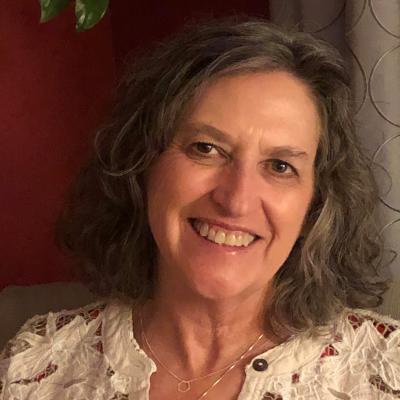
Nancy Whitesell
Nancy Rumbaugh Whitesell, Ph.D., is a professor at the Centers for American Indian and Alaska Native Health, Colorado School of Public Health, University of Colorado Anschutz Medical Campus. Dr. Whitesell works in partnership with Indigenous communities around the United States to promote positive developmental outcomes among Indigenous children and adolescents. She currently leads several projects, including a randomized controlled trial (funded by the National Institute on Drug Abuse; NIDA) of the Thiwáhe Gluwáš’akapi early substance use prevention program for American Indian youth and families; the Multi-site Implementation Evaluation of Tribal Home Visiting (MUSE), funded by the Administration for Children and Families (ACF), the Native Children’s Research Exchange and its early career mentoring program, NCRE Scholars, both funded by NIDA. She also serves as Director of Research and Measurement for the ACF-funded Tribal Early Childhood Research Center.
Centering Race & Culture in Developmental Science: Native American/Indigenous Children’s Educational Experiences
With Community Partners
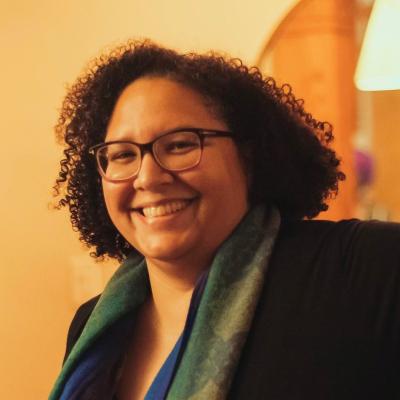
Ananda Marin
Ananda Marin is an Associate Professor at the University of California, Los Angeles. As a learning scientist, she uses video-ethnographic methods and participatory design research to explore questions about the cultural nature of cognition and development. A primary goal of her work is to broaden conceptualizations of learning and teaching in ways that are consequential to the communities she partners with. Toward this end, she researches learning across a variety of activities, including the everyday and the professional, and co-designs learning contexts with communities that are in right relations with Indigenous lands/waters. Within these research areas, she examines the multiple ways that multigenerational groups of people coordinate attention and observation in order to participate in joint activity, collaborate, and improvise. She also engages in micro-ethnographic analyses of the moment-to-moment unfolding of interaction, accounting for the role of relationality, embodied movement, and place in science-related education and teaching/learning more generally.
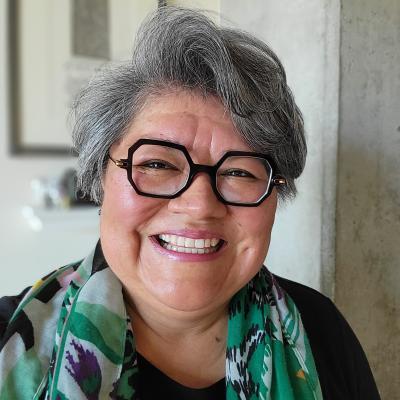
Tarajean Yazzie-Mintz
Tarajean Yazzie-Mintz, Ed.D., (Diné) is Co-Founder and Principal Consultant at First Light Education Project (Denver, CO), where she leads national community-based inquiry projects such as the Indigenous Early Learning Collaborative, and other community-based inquiry initiatives. From 2011 to 2019, Yazzie-Mintz designed and directed the American Indian College Fund’s early learning initiatives, working with tribal colleges and universities on strengthening teacher education and research partnerships with tribal communities. Yazzie-Mintz has worked within the field of Native early education for 30 years, contributing to scholarship on transformative Indigenous education, and seeking to create increased opportunities for tribal educational practitioners to ask their own questions and to conduct their own inquiries.
Displacement & Migration: Positive Child Development
Moderated by Carola Suarez-Orozco, Harvard University
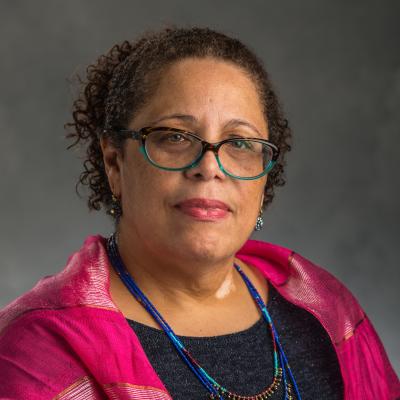
Deborah Johnson
Deborah J. Johnson, Ph.D., (she/her) is currently, MSU Foundation Professor of Human Development and Family Studies, and the Director of the Diversity Research Network in Office for Institutional Diversity and Inclusion at Michigan State University. Johnson also recently served as interim Director/Chief Diversity Officer. Johnson's research emphasizes cultural adjustment with central focus in the area of racial/ethnic identity development and racial socialization in varying contexts from middle childhood through emerging adulthood domestically but also internationally in several nations. With colleagues, she has followed displaced South Sudanese refugee youth for more than 20 years in their U.S, adjustment journey. Past chair of the SRCD Black Caucus. Recipient of two national mentoring awards. Author of numerous books, monographs, articles, and chapters, her last three book volumes look at global and domestic issues of school, prejudice, and child rights. Newest volumes, Re/Formation and Identity: The Intersectionality, of Development, Culture and Immigration (2021, Johnson, Chuang & Glozman (Eds.)), with emphasis on youth and families in global contexts, and the Handbook of Children and Prejudice: Integrating Research, Practice, and Policy (2019, Fitzgerald, H.E., Johnson, D.J., Qin, D.B., Villarruel, F.A., Norder, J. (Eds.), Springer).
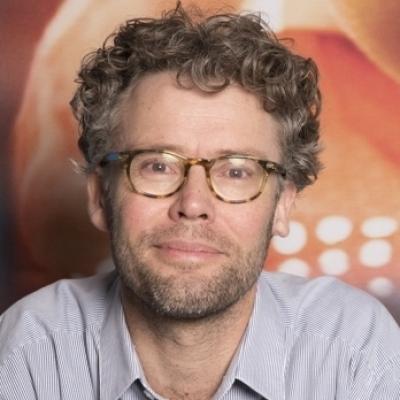
Mark Jordans
Mark Jordans, Ph.D., is Professor of Child and Adolescent Global Mental Health at the Center for Global Mental Health, King’s College London, and Professor Child and Adolescent Global Mental Health at the Amsterdam Institute of Social Science Research, University of Amsterdam. He is a child psychologist and works as Director of Research & Development for War Child in the Netherlands. His research interests are the development, implementation and evaluation of psychosocial and mental health care systems in low and middle income countries, especially for children in adversities. Mark is the founder and Senior Technical Advisor of TPO Nepal, a mental health NGO in Nepal. He is an advisor to several global mental health initiates, including several WHO Expert Committees. He was a commissioner for the Lancet Commission Report on Global Mental Health. He is a Senior Research Fellow and the Amsterdam Institute of Global Health and Development.
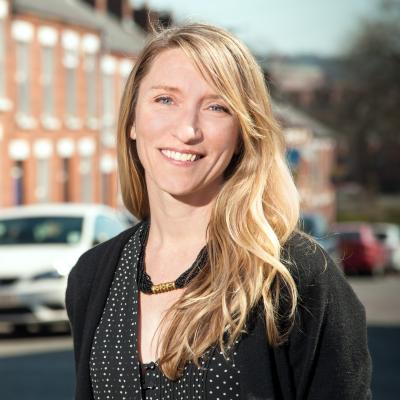
Laura Taylor
Laura K. Taylor, Ph.D., is an Assistant Professor in the School of Psychology at University College Dublin and an Honorary Senior Lecturer in the School of Psychology at Queen's University Belfast. She integrates developmental and social psychology with peace studies to examine positive development and social inclusion among children and youth in conflict-affected settings, such as Colombia, Croatia, Kosovo, Israel, Republic of North Macedonia, and Northern Ireland. She uses the Developmental Peacebuilding Model (Taylor, 2020) to study how multiple factors (e.g., family, school, nation) influence child development. Laura also focuses on children’s and youth’s agency, more specifically, how outgroup prosociality toward conflict rivals may be contribute to peacebuilding. Laura’s current research is funded by the EU H2020, Irish Research Council, Enterprise Ireland, John F. Templeton Foundation. She has over 80 peer-reviewed articles, almost half of which have student co-authors. Laura is a Consulting Editor for Child Development and the Journal of Research on Adolescence, and the Editor of the APA journal Peace and Conflict: Journal of Peace Psychology.
Environmental Justice
Moderated by Joy Osofsky, Louisiana State University
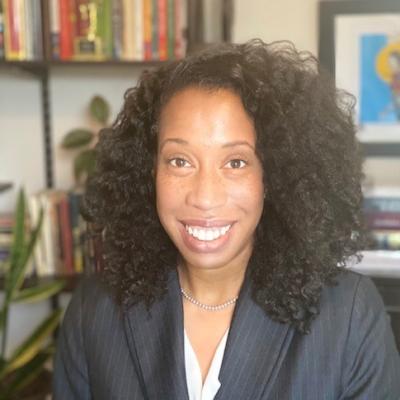
Cassandra Davis
Cassandra R. Davis is an Assistant Professor of Public Policy at the University of North. Carolina at Chapel Hill. Dr. Davis has researched environmental disruptions, specifically the impact of natural hazards on low-income schooling communities of color. Dr. Davis’ goal is to support community leaders, educators, and policymakers to improve responses, preparedness, and recovery in areas with the highest need. Her most recent project focused on gathering insight from community members and government officials on the best strategies to distribute equitable support to marginalized communities and build trust between groups
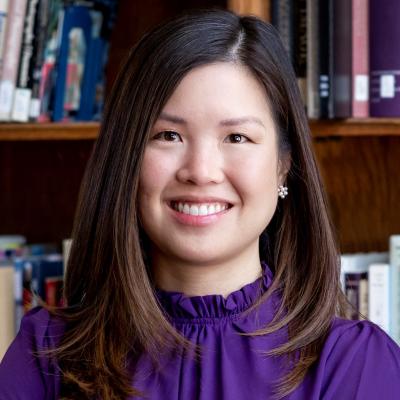
Betty Lai
Betty Lai is an Associate Professor in Counseling Psychology at Boston College. Lai’s research focuses on the impacts of the climate crisis and disasters on children. Her work has examined children's mental health symptoms, physical health symptoms, and school functioning following large-scale disasters (e.g., Hurricanes Katrina, Ike, Charley). Lai’s work also focuses on training scholars in how to write fundable grants. She is the author of The Grant Writing Guide: A Road Map for Scholars (Princeton University Press), which includes strategies and insights gleaned from 100 interviews of grant writing experts. Lai's research has been funded by the National Science Foundation, National Institute of Mental Health, and the National Academies of Sciences, Engineering, and Medicine.
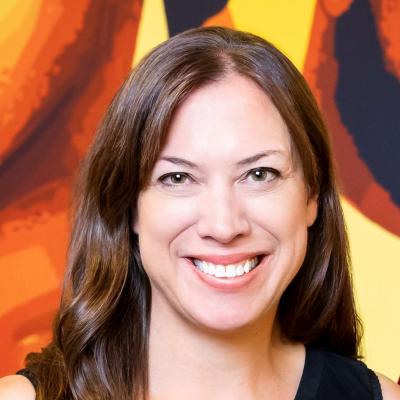
Tara Leytham Powell
Tara Powell is an Associate Professor, at University of Illinois Urbana-Champaign’s School of Social Work. Dr. Powell’s research explores the impact of behavioral health interventions in disaster affected communities throughout the U.S. and internationally. She has developed and explored the impact of mental health interventions with children, families, and communities impacted by conflict (e.g., Syrian Crisis) and climate induced disasters (e.g., hurricanes, earthquakes, tornadoes). Powell’s research has been funded through the Robert Wood Johnson Foundation, National Institute of Mental Health, and the National Academies of Science, Engineering, and Medicine’s.
Developmental Considerations for Transgender Children & Youth
Moderated by Meg Bishop, University of Texas at Austin

Angelo Brandelli Costa
Angelo Brandelli Costa is an Associate Professor of social psychology at the Graduate Program in Psychology, the Graduate Program in Social Sciences, and the Graduate Program in Medicine and Health Sciences at the Pontifical Catholic University of Rio Grande do Sul (PUCRS), Porto Alegre, Brazil. Researches in the areas of social and health psychology, with an emphasis on prejudice and social attitudes, sexuality, gender, and HIV/AIDS.

Selin Gülgöz
Dr. Selin Gülgöz is an Assistant Professor of Psychology and the principal investigator of the Social Thinkers Lab at Fordham University. With her students, she examines how individuals with diverse (and often marginalized) gender identities construct social categories, how people’s reasoning about social categories is reflected in their attitudes and behaviors toward members of those categories, and how we can learn about the developmental origins of early social cognition by observing these cognitive and behavioral processes. Dr. Gülgöz completed her Ph.D. in Developmental Psychology at the University of Michigan. Prior to her position at Fordham, she also completed an NSF-funded postdoctoral fellowship at the University of Washington.
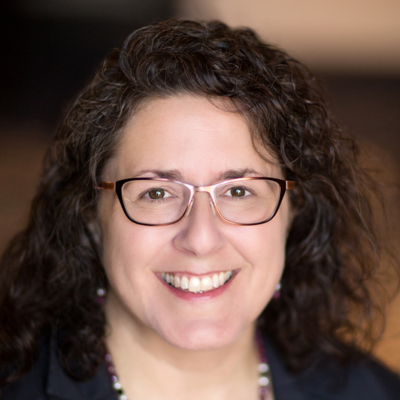
Jenifer McGuire
Jenifer K. McGuire, Ph.D., MPH, is Professor of Family Social Science and Extension Specialist at the University of Minnesota. She earned a Ph.D. in Human Development and Family Studies in 2003, an MPH in 2001, and an M.S. in Family Studies in 1998, all from the University of Arizona. Her research focuses on the role of gender identity and sexual orientation in health, well-being and family relationships. Her research examines how social contexts like schools and families influence the well-being of trans and gender non-conforming young people. Her current focus is on a broad spectrum of gender identity development and family relationships among transgender and genderqueer identified youth and young adults.
Civic & Political Engagement in Uncertain Times
Moderated by Scott Seider, Boston College

Elan Hope
Elan C. Hope, Ph.D., is the Program Area Director for Research and Evaluation at Policy Research Associates. As Program Area Director, Dr. Hope develops and provides oversight on research projects and uses her area’s research findings to inform and strengthen PRA’s technical assistance efforts. Dr. Hope has a strong background in research focused on academic, civic, and psychological well-being for racially marginalized groups, youth, and emerging adults. Dr. Hope takes an assets-based approach to understanding individual and community factors that promote well-being for adolescents and young adults, particularly structural barriers to wellness. Dr. Hope uses qualitative and quantitative methods to examine factors related to behavioral health and well-being, including racial identity, critical consciousness, socialization, and activism. Dr. Hope is also an Associate Editor at the Journal of Adolescent Research. Prior to joining PRA, Dr. Hope was an associate professor of psychology and a university scholar at NC State University. Dr. Hope is from Prince George’s County, Maryland. She earned her Bachelor’s degree in Psychology from Smith College and her PhD in Education and Psychology from the University of Michigan. Following graduate school, Dr. Hope completed a post-doctoral fellowship (sponsored by the William T. Grant Foundation) in Comparative Human Development at the University of Chicago.
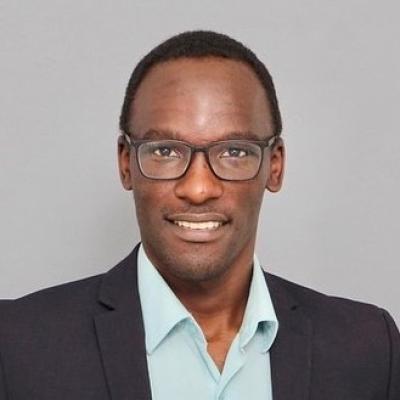
Andrew Nalani
Andrew Nalani is a Doctoral Candidate in Applied Psychology (Psychology and Social Intervention) at NYU Steinhardt. He takes an interdisciplinary approach to understanding the design and impact of transformative programs that promote positive youth development across cultures and sectors, drawing particularly from theories and methods in community psychology, sociology and organizational studies. Motivating this inquiry is whether and how interventions alter power relations (youth-adult partnerships) in youth-serving organizations to enhance youth’s outcomes. His mixed-methods dissertation focuses on how staff make meaning of their efforts to engage system-involved youth in residential juvenile/welfare facilities and how they perceive the functioning of staff-youth power relations. The goal is to illuminate the viability of youth-adult partnerships to foster positive development in this particular organizational context. He is also engaged in a research-practice partnership with Partners for Youth Empowerment, holds a Master’s in Education from Harvard University and an A.B. from Dartmouth College.

James Sloam
James Sloam is Professor of Politics at Royal Holloway (University of London). His research on youth civic and political engagement in Europe and the United States is published widely in academic journals. It focuses on the emerging repertoires of political action, inequalities of participation and new ways of understanding the everyday politics of young people. His 2019 book with Matt Henn, ‘Youthquake 2017’ (Palgrave), identified the rise of cosmopolitan values amongst Millennials and Generation Z, as illustrated by the recent surge in climate activism and electoral support for Green parties. James’ most recent work sheds light on the relationship between youth, sustainability and democracy in cities, investigating pathways to youth participation in public policy. He has worked closely with policy-makers on these topics, including the United Nations and OECD. In 2019, he led a major study for the Greater London Authority mapping youth politics onto the UN Sustainable Development Goals.
Developmental Neuroscience
Moderated by Adriana Galván, University of California, Los Angeles
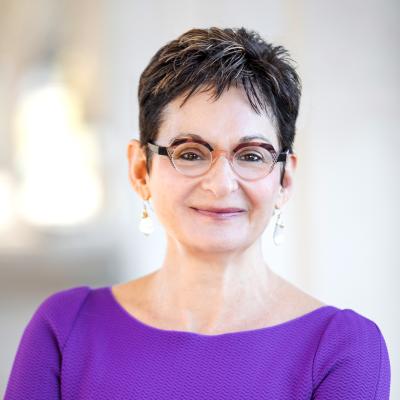
Joan Luby
Joan Luby, M.D., is the Samuel and Mae S. Ludwig Professor of Psychiatry at the Washington University School of Medicine where she founded and leads the Early Emotional Development Program. Dr. Luby’s research program has focused on early childhood affective psychopathology and emotional development for 30+ years. Dr. Luby has conducted one of the first and multiple large-scale studies of preschool onset depression and provided data on the validity, clinical characteristics, longitudinal course and brain developmental outcomes of early onset depression. Her findings highlight psychosocial factors, including maternal support and early life adversity, on neurodevelopment. Dr. Luby has developed and tested a novel early parent-child intervention for depression that focuses on enhancing emotion development. Dr. Luby has published > 300 papers and has been awarded numerous honors including membership in the National Academy of Medicine, the Brain and Behavior Foundation Ruane Award and the American Psychiatric Association Ittelson award.
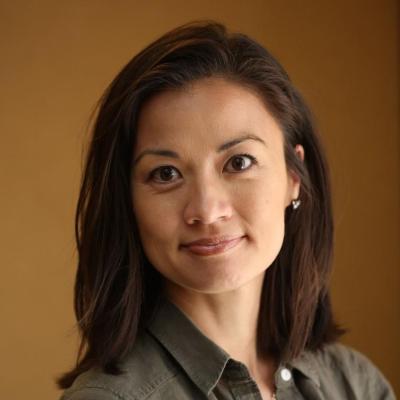
Nim Tottenham
Nim Tottenham is a Professor of Psychology at Columbia University and Director of the Developmental Affective Neuroscience Laboratory. Her research examines brain development underlying emotional behavior in humans. In particular, her laboratory investigates the interplay between brain development and caregiving experienced by humans. Her research has highlighted fundamental changes in brain circuitry across development and the powerful role that early experiences, such as caregiving and stress, have on the construction of these circuits. She has authored over 125 journal articles and book chapters. She is a frequent lecturer both nationally and internationally on human brain and emotional development. She is a Fellow of the Association for Psychological Science and of the Society for Experimental Psychologists, and her scientific contributions have been recognized by the National Institute of Mental Health BRAINS Award, the American Psychological Association’s Distinguished Scientific Award for Early Career Contribution to Psychology, and most recently by the National Academy of Sciences Troland Research Award.

Kathrin Cohen Kadosh
Dr. Kathrin Cohen Kadosh is an Associate Professor in Developmental Cognitive Neuroscience at the University of Surrey, where she is head of the Social Brain & Development Lab and the multidisciplinary Brain Nutrition Gut Microbiome group. She read for her Ph.D. at Birkbeck College, University of London and went on to receive postdoctoral training at University College London, King's College London, the National Institutes of Health (USA) and the University of Oxford. A developmental cognitive neuroscientist, she combines behavioural assessments and brain-imaging techniques to understand how improving cognitive abilities and changes in brain function and structure shape the emerging brain network and subsequent behaviour. Another line of her work investigates the role of the microbiome gut-brain axis on mental health and well-being in development, using psychobiotic interventions such as prebiotics to enhance behaviour and brain function in children and adolescents. She has held a number of national and international research grants and collaborates with industrial partners and charities. Her work has been published in reputed academic journals and textbook chapters and she serves as a reviewer on a number of national and international research panels.